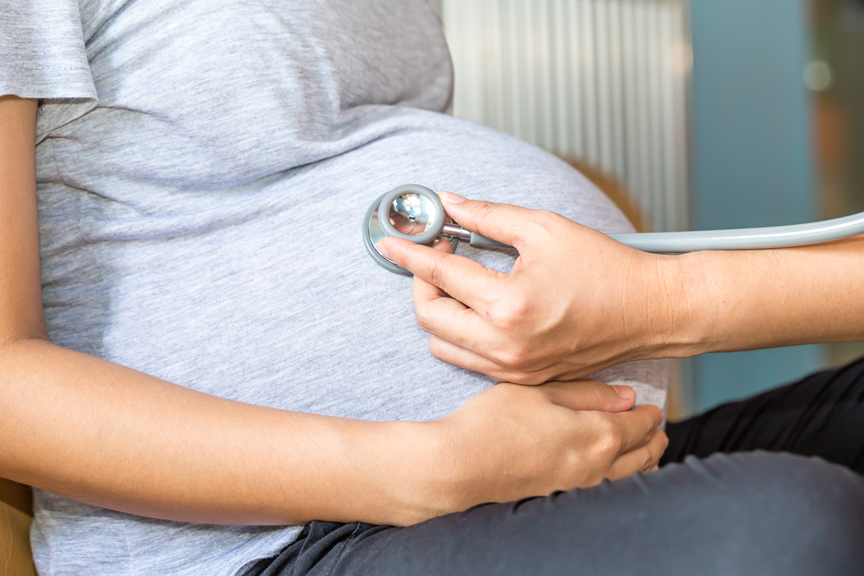- Health
- Parenting
- Things to do
Nutrition, exercise, less stress = healthy pregnancy, foundation

In this article, you’ll find answers to questions like:
1. Why is my weight crucial?
2. What's the impact of stress?
3. Is dental health important?
If you're pregnant, you may be daydreaming — or worrying — about how you'll make your child's life perfect.
But you don't have to wait until the big day. You can start now.
1. WHY IS MY WEIGHT CRUCIAL?
“When a woman becomes pregnant, the body will work to nourish the growing baby with whatever resources it has, which is why it’s so important to give your baby the best foundation possible by eating healthy, maintaining a healthy weight and exercising before you try to conceive,” says Belci Encinosa, director of Community Health Initiatives for Healthy Mothers, Healthy Babies Coalition of Palm Beach County. “We see moms who are overweight and even underweight, and not being at a healthy weight from the start, sometimes the body will reject the baby.”
Eating healthy and exercising started as “a vanity thing” for Tequesta resident Jenny Lee Allen, but it became even more important when she learned she was pregnant at 34.
“Just knowing that a tiny human being was growing inside me was enough for me to kick my lingering bad habits, including diet soda and artificial sweeteners,” she says. “I was in great shape and was able to continue exercising and even running up until the day my son was delivered. I did indulge in the occasional craving, such as ice cream and onion rings, but I kept everything in check.”
Allen’s second pregnancy a couple years later also went smoothly while continuing to eat well and exercise almost daily. In fact, she logged 800 miles during her second pregnancy. Once again, she had a relatively easy delivery when her daughter was born.
2. WHAT'S THE IMPACT OF STRESS?
Another factor that can make it difficult to conceive or promote a healthy pregnancy is stress. Christine Englestad, former division director of Maternal Child Health with the Florida Department of Health in Palm Beach County, cites research from Ohio State University’s Wexner Medical Center that concluded women who had the highest levels of stress, as measured by a biological indicator found in saliva, took 29 percent longer to get pregnant, and their risk of infertility doubled.
And if a woman suffering from chronic stress becomes pregnant, it could lead to issues for the child, according to a study out of the U.K.
“This study actually highlighted that maternal stress can lead to increased anxiety and decreased memory function in the child later in life,” Encinosa says.
3. IS DENTAL HEALTH IMPORTANT?
It may be no surprise that eating healthy and maintaining a healthy weight are necessary to help ensure a healthy pregnancy. But did you know your dental health is just as important?
Englestad cites a study at the University of Western Australia that examined the oral health of mothers and the average time it took to get pregnant.
“It took women with poor oral hygiene an average of two months longer to conceive than their healthier counterparts,” she says. “While there isn't an exact reason why dental health has an effect on fertility, researchers believe periodontal disease releases an inflammatory chemical that may hinder a fertilized egg from implanting itself into the uterus.”
In fact, Allen says her dentist recommended she get dental cleanings every three months during her pregnancies, instead of the usual six-month span.
“Six months after my daughter’s birth, I shed the extra weight and felt comfortable in my skin,” she says. “It wasn't easy, and the pounds didn't just melt off by breastfeeding, but through hard work and eating right. I still indulge in the occasional sweet and glass of wine, but I keep everything in moderation. One look at my little ones, and I know I want to be on this Earth as long as possible.”
SOURCES:
• Belci Encinosa director of Community Health Initiatives, Healthy Mothers, Healthy Babies Coalition of Palm Beach County
• Christine Englestad, former division director of Maternal Child Health, Florida Department of Health in Palm Beach County
• Science Daily
• Wiley Online Library
Related resources
-
- Health
T. Leroy Jefferson Medical Society
A network of minority health-care professionals providing health education programs, youth mentoring programs, speakers, health fairs and screenings in Palm Beach County, focusing on helping the underserved
561-318-0814 Website Email -
- Health
- Other
- Parenting
Florida Department of Health – Palm Beach County
Maternal Child Health Division — services for pregnant women and families with babies, including nutrition information, nurse home visits, breastfeeding support and more
561-840-4500 Website Email -
- Health
Palm Beach County Medical Society
Find a Doctor — search by specialty or doctor's name to locate a local doctor (Note: This is not a complete list)
561-433-3940 Website -
- Health
- Other
- Parenting
Healthy Mothers, Healthy Babies Coalition of Palm Beach County
A safety net of local services and support for pregnant women and families with infants, focusing on racial disparities in birth outcomes
561-623-2800 Website -
- Health
- Other
Health Care District of Palm Beach County
C.L. Brumback Primary Care Clinics — medical, mental health and dental services at more than a dozen locations through the county, regardless of your ability to pay or whether you have health coverage, including for homeless and migrant populations.
561-642-1000 Website -
- Health
- Other
Florida Department of Health – Palm Beach County
Dental program — community water fluoridation
561-840-4500 Website Email -
- Health
- Other
Florida Department of Children and Families
ACCESS Florida (Automated Community Connection to Economic Self Sufficiency) — application for food assistance, Medicaid and other government benefits.
1-850-300-4323 Website
